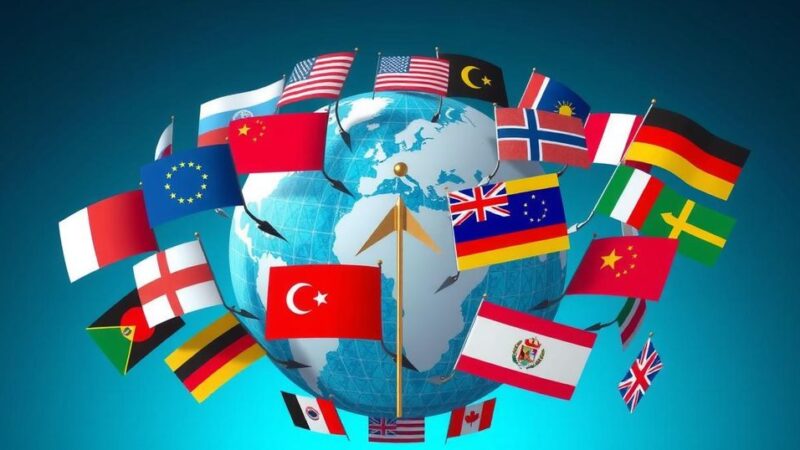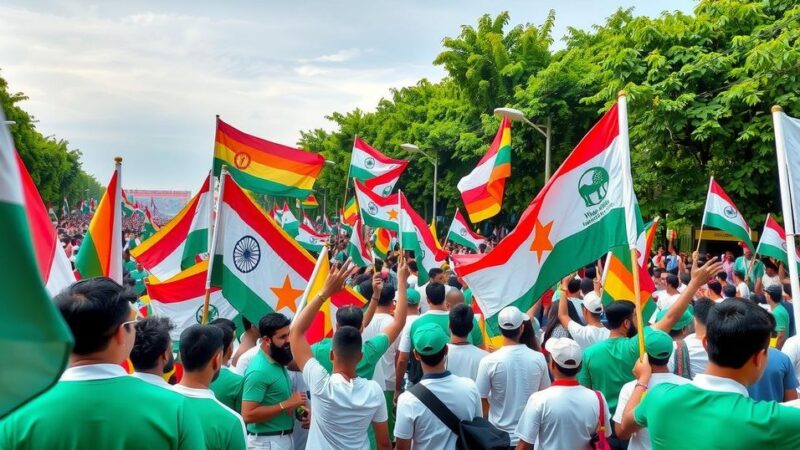Vice-President Constantino Chiwenga is gaining attention for his dynamic use of language, deeply rooted in local vernacular, shaping public discourse in Zimbabwe. Renowned for his role in the 2017 coup, his speeches now address corruption with bold assertions, influencing social media and sparking cultural discussions. Phrases like “Pasi nezvigananda” reflect a call for accountability, connecting historical narratives to current challenges, and emphasizing the power of words in the political landscape.
Vice-President Constantino Chiwenga, recognized for his significant contribution in the 2017 military coup that transitioned Zimbabwe from Robert Mugabe’s prolonged rule, is now gaining prominence for his dynamic use of language. His public statements, infused with local vernacular, resonate deeply with Zimbabweans, influencing both social media and daily conversations throughout the nation.
Chiwenga is often remembered as the bold former army general who played an essential part in Mugabe’s ousting. His historical actions in November 2017, especially during an incident at Harare’s airport, marked a decisive moment in Zimbabwe’s political narrative. Currently serving as the second most powerful leader, his rhetoric exemplifies a vibrant public persona, characterized by memorable phrases that significantly shape national dialogue.
Recent speeches by Chiwenga have drawn attention for their audacious language. During a commemoration at the National Heroes Acre in Harare, he denounced corruption forcefully, asserting, “Zimbabwe belongs to all of us. We must share its God-given bounty… Corruption has to end.” His condemnation of wealth gained through corrupt practices was notably enhanced by his use of the term “zvigananda,” historically applied to opportunists exploiting turmoil.
Chiwenga’s assertions, including the phrase “Pasi nezvigananda”—meaning “Down with leeches”—have emerged as rallying points among Zimbabweans frustrated with rampant corruption. Political analyst Lazarus Sauti noted that Chiwenga’s expressions are highly relevant to the contemporary political, economic, and social context, with terms like “zvigananda” now embedded in social discussions.
His straightforward and colloquial language has resonated with citizens, significantly impacting social media discourse. Chiwenga’s commentary on illegal foreign exchange traders has evolved into common vernacular, influencing interpersonal discourse among Zimbabweans. At a rally prior to the August 2023 elections, he effectively utilized vivid metaphors to criticize the opposition, notably comparing them to lice and articulating, “You see how we crush lice with a stone…”.
Media expert Mlondolozi Ndlovu assessed Chiwenga’s unique style, emphasizing his alignment with the traditional nationalist movement and his consistent use of language reflective of liberation struggle narratives. Chiwenga’s language not only represents Zimbabwe’s intricate political climate but also molds it, linking the past with present challenges through the revival of significant terms from the liberation era.
As Zimbabwe grapples with economic trials and political shifts, Vice-President Chiwenga’s vibrant rhetoric continues to provoke discussions and introspection. Regardless of whether he is praised for his genuineness or criticized as populist display, his language is undeniably impactful, reminding citizens of the influential role words play in shaping the trajectory of a nation.
In summary, Vice-President Constantino Chiwenga’s vibrant use of vernacular not only reflects but also shapes Zimbabwe’s political and social landscape. His impactful rhetoric resonates with the public, particularly his denunciations of corruption and his revival of historical terms. As he navigates contemporary challenges, Chiwenga’s language serves as both a cultural marker and a catalyst for accountability and reform, emphasizing the power of discourse in the evolution of national identity.
Original Source: bulawayo24.com






